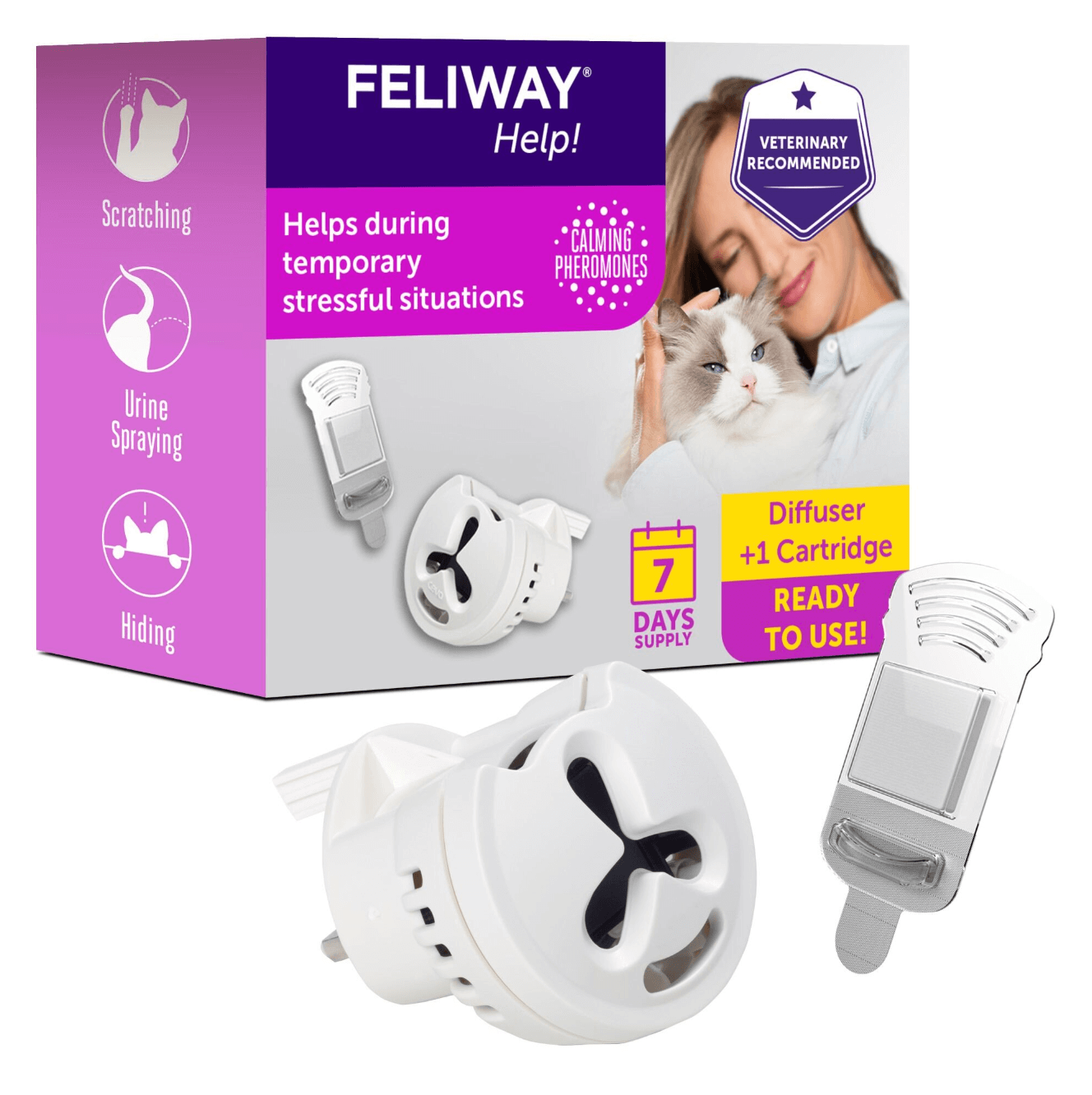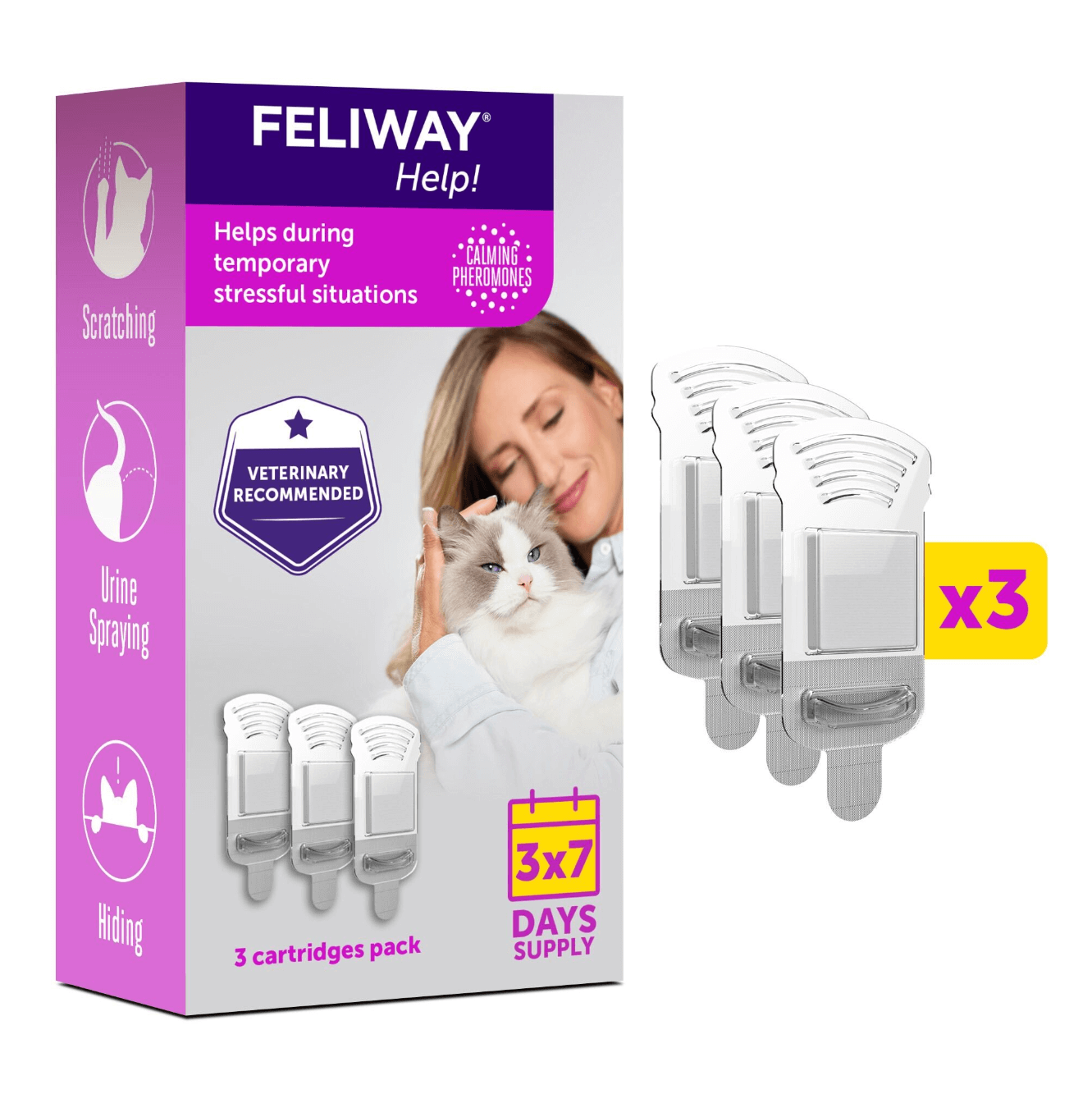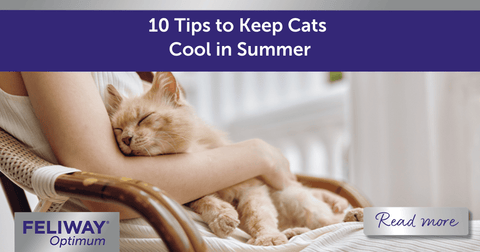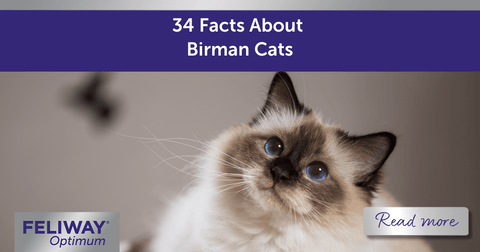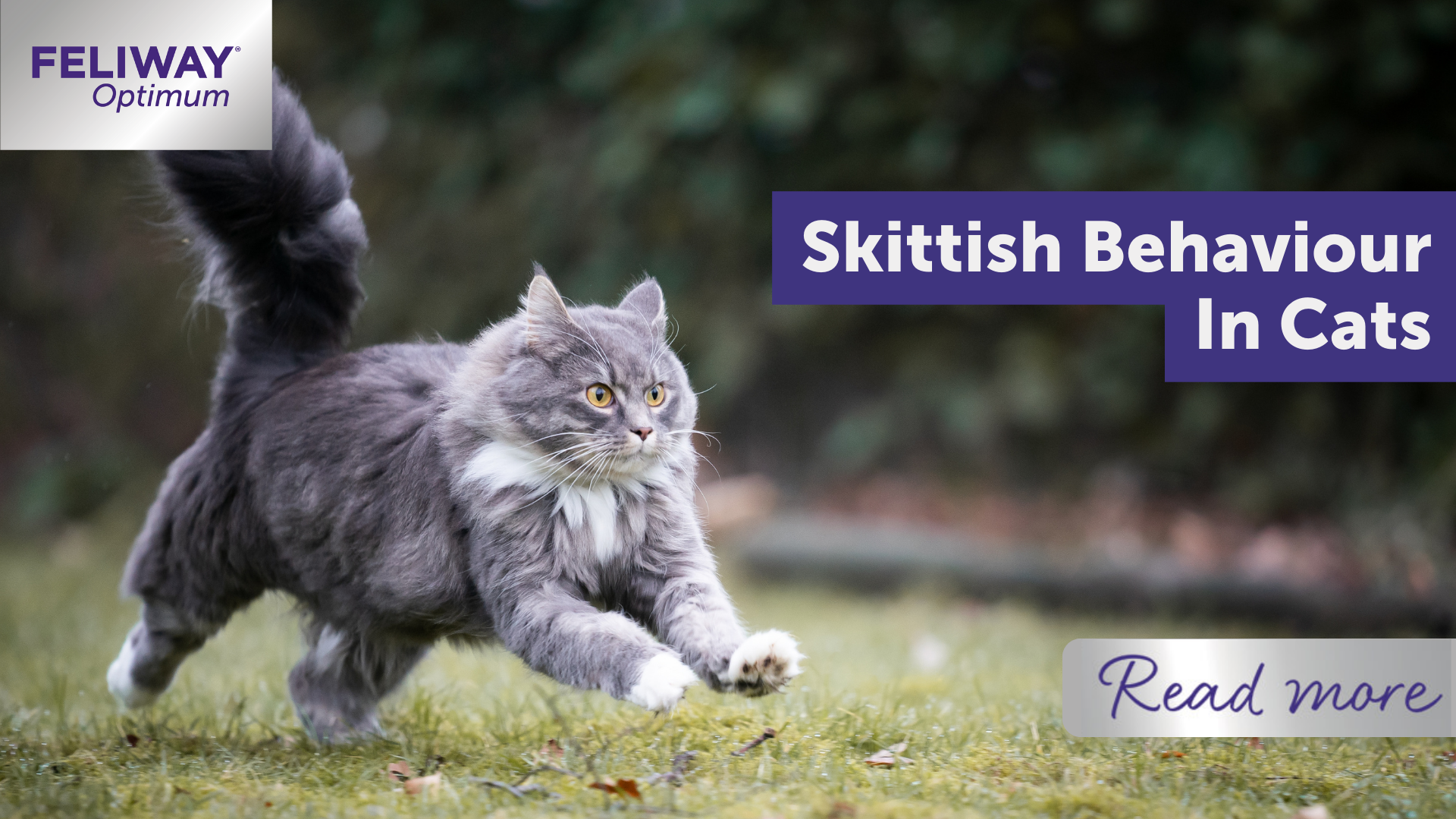
Skittish behaviour in cats
By Jimmy Bratley
BSc BVetMedSci BVMBVS MRCVS - Veterinary Advisor
Some cats have an inherently skittish nature or anxious disposition, while others may be generally calm but respond to certain triggers in a skittish way.
Being 'skittish' is actually a flight response, in terms of the fight or flight options when confronted by something stress-inducing or potentially threatening. Cats might run away, hide, not want to be touched, be easily startled or unpredictable in their response, and all cats have the potential to respond in any of these ways at any time.
But if your cat is showing skittish signs a lot of the time and to everyday triggers, it would be sensible to look into the causes and what can be done to help.
SIGNS OF ANXIETY IN CATS
It is important to remember that cats are classed as both a predator and prey species. Therefore their natural prey instincts tell them to run away, hide, or get up high away from anything potentially scary. But cats who are living in a constant state of anxiety are going to be more easily triggered to respond in this way, and these cats are generally who we label as 'skittish'.
For skittish cats we recommend FELIWAY Optimum Diffuser.
SO HOW CAN WE HELP SKITTISH CATS FEEL LESS WORRIED ABOUT LIFE?
It is important that a vet gives your cat the all-clear medically, before assuming that you simply have a skittish cat. There are many medical issues that may contribute to a cat responding with 'flighty' behaviour.
Once you know your cat is fit-and-well, try to identify any potential triggers that specifically cause your cat to react in a skittish manner and try to prevent exposure to these scary things. Ensure that your cat feels safe in its home environment and that they have lots of options to retreat to if they need to. Simply knowing they have loads of hiding and high-up places will make your cat feel more in-control and secure in their core territory.
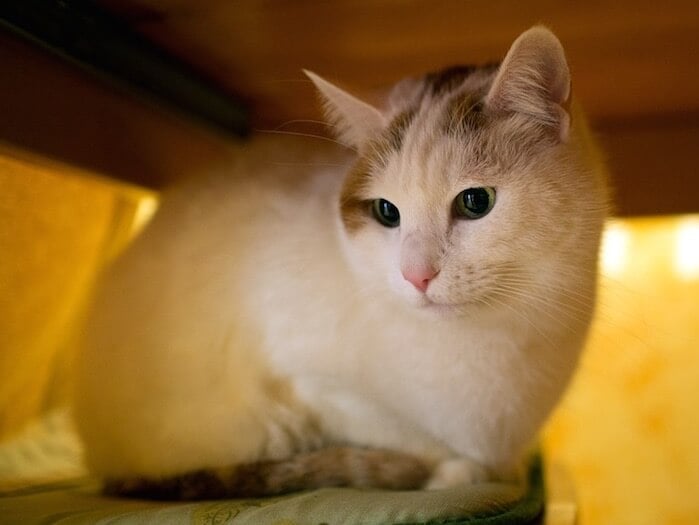 Try to create a safe area, such as a certain room of the house, where your cat is never exposed to whatever it is that might cause them to react skittishly. For example, if visitors normally make your cat all twitchy, pop your cat in their safe room before visitors arrive at the house and ensure no one enters the cat's room. Pop a FELIWAY Optimum Diffuser, food bowl and a water bowl in this room, as well as providing loads of hidey-holes and encourage the ability to get up onto high furniture.
Try to create a safe area, such as a certain room of the house, where your cat is never exposed to whatever it is that might cause them to react skittishly. For example, if visitors normally make your cat all twitchy, pop your cat in their safe room before visitors arrive at the house and ensure no one enters the cat's room. Pop a FELIWAY Optimum Diffuser, food bowl and a water bowl in this room, as well as providing loads of hidey-holes and encourage the ability to get up onto high furniture.
BRING OUT THEIR INNER PREDATOR
Providing plenty of hunting opportunities using play can help turn your cat from feeling like a scaredy prey animal to a confident predator! Many owners of adult cats admit that they no longer offer play sessions since kittenhood elapsed. But all cats have an innate drive to stalk, pounce, chase and catch, even three-legged, blind cats!
You can use fishing-rod/wand toys for hunting opportunities on a daily basis. Be sure to mimic the movements and behaviour that a real mouse or bird would make, no prey animal wants to be eaten! They freeze on sight of a predator and scurry away from them, never running towards or hanging around in front of their face! Keep the toy within the cat's reach and keep sessions very short.
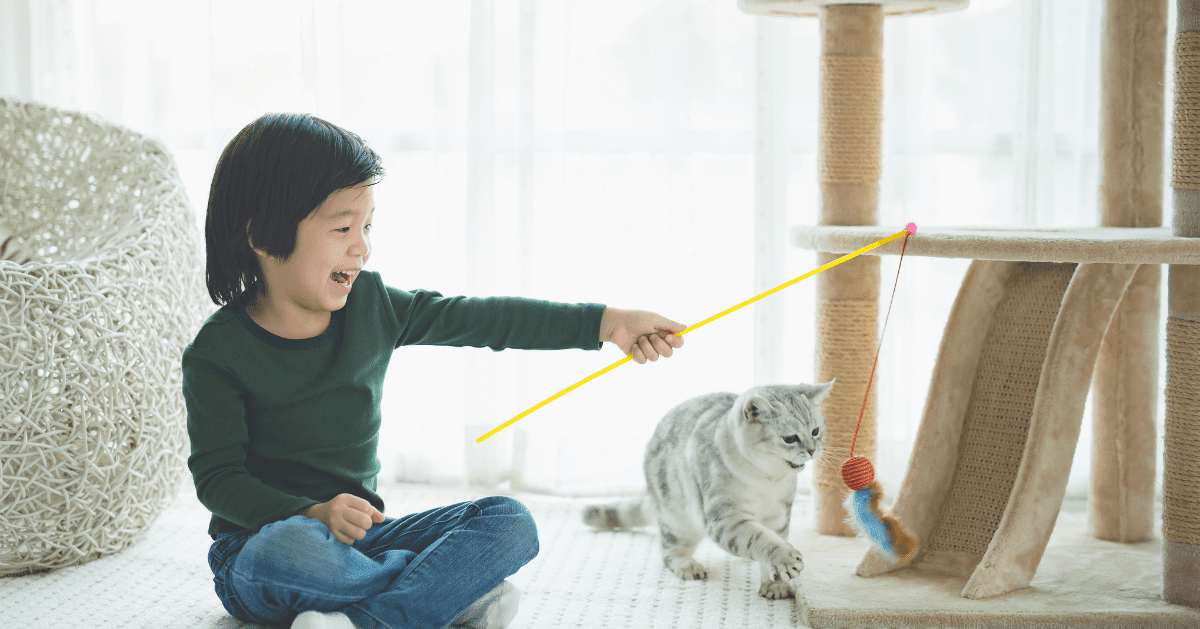 Small toys can be provided for your cat to independently play with. Consider a variety of textures, scents (catnip is often a favourite!) and noises (bells, squeaks, rattles etc). Have these on a rotational basis to prevent your cat getting bored of their presence.
Small toys can be provided for your cat to independently play with. Consider a variety of textures, scents (catnip is often a favourite!) and noises (bells, squeaks, rattles etc). Have these on a rotational basis to prevent your cat getting bored of their presence.
Activity feeders are also great for confidence-building. They require your cat to work out how to access food, and success after problem-solving is a huge confidence-booster. It is important to ensure it is not too difficult initially, because if your cat gives up it is more likely that they will feel a failure instead of a clever-clogs! So start off with an easy setting, and you may even need to show them how to manipulate the item to access food. Mix in some tasty treats to really motivate them and then you can gradually increase the difficulty and use their normal food rations in the toys.
If you’d like to know more tips about leaving cats home alone, check out all our other fantastic blogs online! Or if you have any questions, please don’t hesitate to get in touch – we’ll be delighted to share all the insights we can. And while you’re here, don’t forget to sign up to our newsletter to stay up to date with all our latest news, articles, and products













